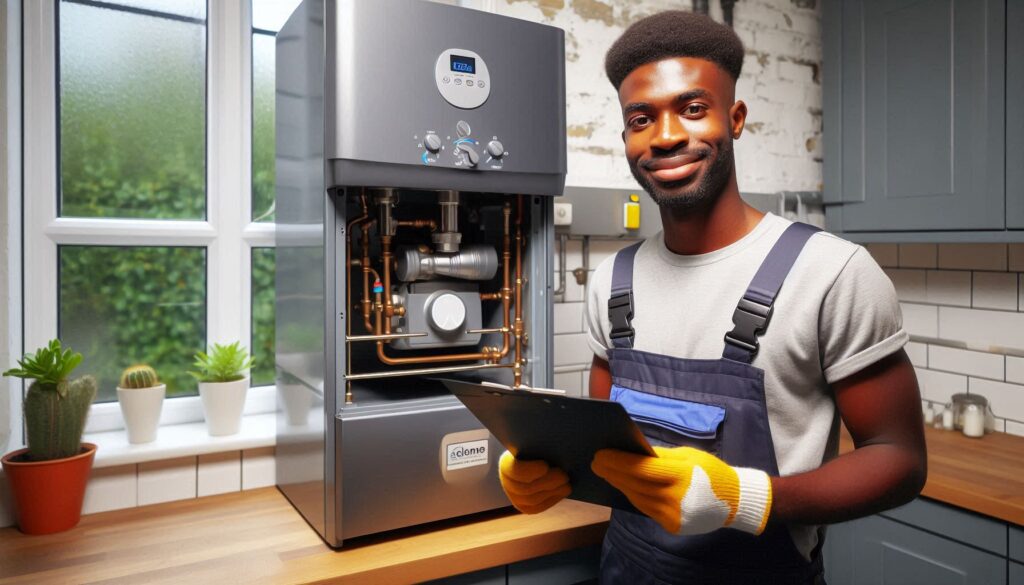
If you live in London, your heating system is not just about comfort—it’s about safety, efficiency, and compliance. Many properties still rely on outdated systems, which increase energy bills and risk non-compliance with regulations. That’s why understanding the legal boiler replacement UK rules is critical before starting upgrades. This heating upgrade guide will help landlords and homeowners navigate London’s property standards and complete upgrades legally, safely, and efficiently.
Before you book an engineer, make sure you understand the law. In London, all heating installations must follow Gas Safe regulations. A legal boiler replacement UK process requires hiring a registered Gas Safe engineer who can issue a certificate upon completion. This heating upgrade guide ensures you avoid penalties while keeping tenants safe and properties compliant.
Before investing in a new system, it’s important to evaluate whether your current one can still serve you safely and efficiently. Many London homes rely on boilers that are more than 10–15 years old, and while they may still function, they often fail to meet modern efficiency or safety standards. Rising energy bills, constant repair needs, or poor heating performance during colder months are strong signs that a legal boiler replacement UK is necessary—especially after a failed boiler inspection.
Another consideration is compliance. Landlords in London are legally required to provide safe and energy-efficient heating for tenants. If your system struggles to meet demand, leaks carbon monoxide, or lacks the necessary certification, you could face penalties. This is where a structured heating upgrade guide helps: by reviewing the age of the boiler, the availability of replacement parts, and the overall safety of the system, you can decide whether repairs are enough or if replacement is the smarter option.
The next step in the heating upgrade guide is selecting the correct model. Condensing boilers are now standard across London due to efficiency requirements. A legal boiler replacement UK project may also involve upgrading pipework or radiators, depending on property size. By choosing wisely, landlords not only comply with the law but also improve tenant satisfaction, so it’s essential to choose the best boiler for your rental property.
No matter how tempting it is to cut costs, you cannot legally replace a boiler without a certified professional. A legal boiler replacement UK must be completed by a Gas Safe registered engineer. Following this heating upgrade guide, always check your contractor’s ID card and registration number. This keeps your London property safe and protects you against liability.
Every legal boiler replacement UK ends with paperwork. You should receive:
Without these, your heating system is technically non-compliant. This heating upgrade guide stresses that keeping certificates safe is as important as the installation itself, particularly if you plan to rent or sell your London property.

If you’re already planning a legal boiler replacement UK, it’s the perfect time to think about energy efficiency. Many London landlords use this opportunity to add smart thermostats, improve insulation, or upgrade radiators. This heating upgrade guide shows how combining improvements saves costs long term while boosting tenant comfort.
In London, a new boiler can cost between £1,500 and £3,000 depending on property type. Fortunately, grants and finance plans are available. By following this heating upgrade guide, you can explore government schemes like the ECO+ initiative, which supports energy-efficient heating upgrades. Always confirm eligibility before starting the legal boiler replacement process.
After the legal boiler replacement UK, don’t forget ongoing care. London landlords are legally required to conduct annual gas safety checks. This heating upgrade guide suggests setting up reminders for inspections, filter cleaning, and annual servicing. Keeping records updated not only complies with the law but also avoids costly repairs later. Proactive maintenance also extends the life of your new boiler, ensuring that tenants experience reliable heating all year round.
Tenant communication is essential. Inform residents about timelines, expected disruptions, and safety precautions. Sharing details about the legal boiler replacement UK process and this heating upgrade guide shows transparency. It reassures London tenants that their comfort and safety are prioritised, while also protecting landlords from disputes. Clear updates also reduce misunderstandings, giving tenants confidence that you are managing the property responsibly and legally.
London landlords sometimes face problems such as:
• Hiring unregistered engineers
• Forgetting to register the replacement with the council
• Losing compliance certificates
By following this heating upgrade guide, you can avoid these pitfalls and complete a smooth, fully compliant legal boiler replacement while ensuring proper boiler maintenance in the future.
Upgrading your heating system is not just about warmth—it’s about compliance, safety, and efficiency. A legal boiler replacement UK ensures your property meets London’s strict regulations, while this heating upgrade guide provides a step-by-step roadmap to achieve it. By choosing the right professionals, keeping proper documentation, and planning smartly, you’ll protect tenants, avoid fines, and know the best time to book your boiler service for long-term peace of mind.

